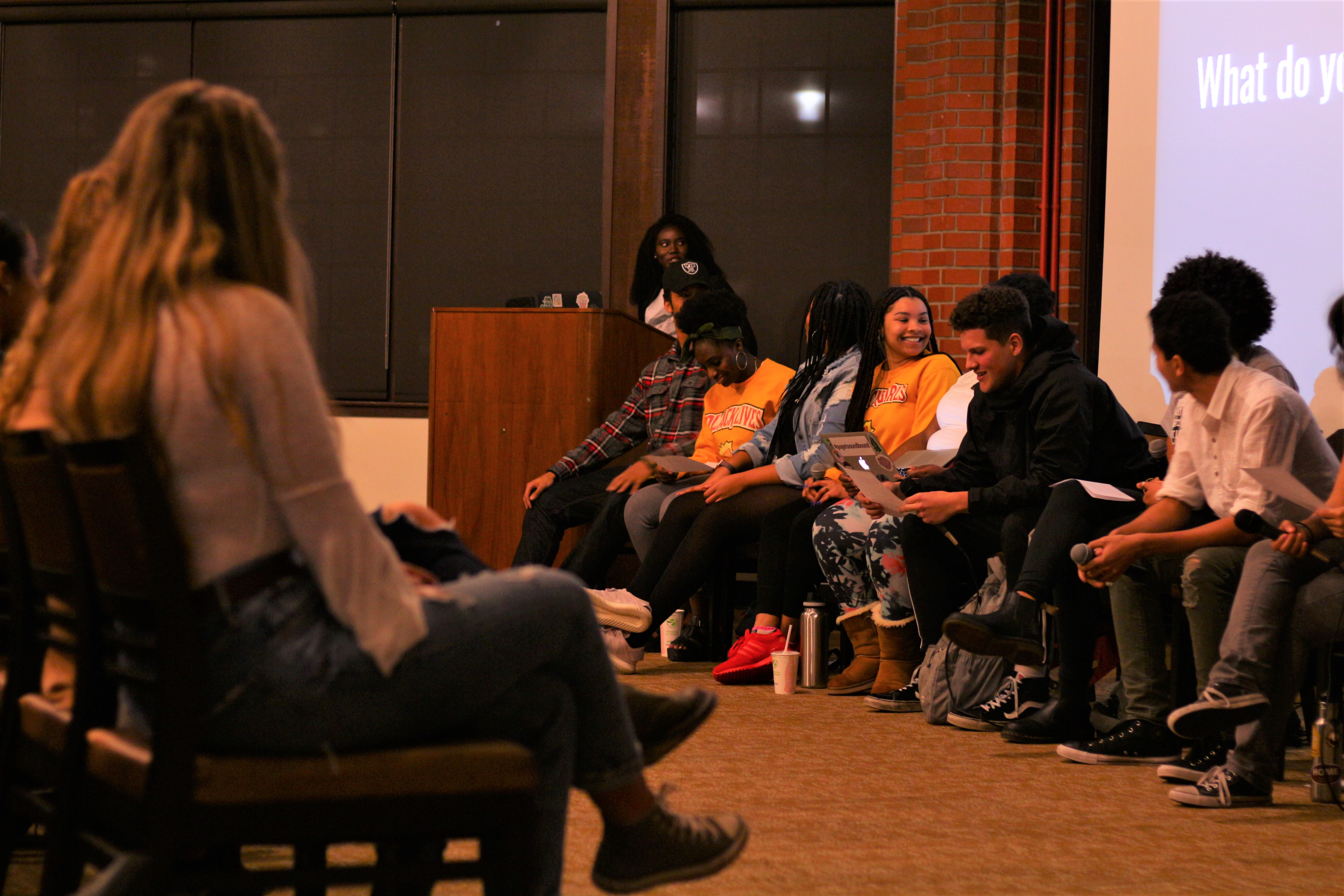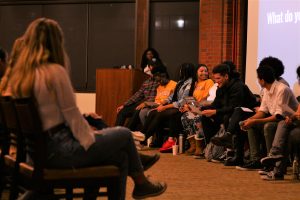
By Lorraine Kelly

On what would have been Trayvon Martin’s 23rd birthday, students gathered in the Rasmussen Rotunda for a panel presentation titled “Uncensored: A Q&A About the Black Experience,” presented by the Black Student Union (BSU).
Questions were gathered in the weeks leading up to the presentation via an anonymous online form. Topics ranged from misogynoir to cultural appropriation to queerness in the black experience. Speakers ranged from first-years to seniors, all sharing their experiences on campus and giving advice on handling these topics and situations.
As stated at the beginning of the panel by BSU President Nia Henderson ‘20, the purpose of this panel was to “spark a discussion about race on campus.”
One of the first topics discussed was the use of the N-word, particularly in music. The conversation surrounding the N-word by white individuals has been heavily disputed, especially when listening to music by black artists. Every single panelist denounced the use of the word by white people, and argued that the word carries the weight of a greater historical context.
Another major topic was the presence of microaggressions on campus. According to the Merriam-Webster dictionary, a microaggression is defined as “a comment or action that subtly and often unconsciously or unintentionally expresses a prejudiced attitude toward a member of a marginalized group.”
Kate Threat ‘20, one of the panelists, said, “White people don’t have to worry [about microaggressions] … they’re a silent killer.”
In light of Black History Month, the panelists opened a dialogue as to how to incorporate black history into the overall curriculum. Threat said, “Black history does not begin in 1960 and end in 1970.” Much of the discussion focused on creating a new historical lens from which we can view African American history as American history, not a separate enclave.
Towards the end of the discussion, the conversation shifted to activism. Henderson urged white students to “use [their] white privilege” to aid in the mission towards equality.
Every panelist agreed that educating oneself, regardless of race, gender or economic background, is the best course of action for being an ally in times of oppression. Because of social media, finding educational resources is now easier than ever. As the school approved the African American Studies major this past fall, many students are already choosing to educate themselves on the historical connotations of race in America.
But Erica Greening, another panelist, stated, “You don’t need a sign as long as you’re a good human being.” Listening to others and being receptive towards their experiences allows for greater understanding and a healthier community atmosphere.
